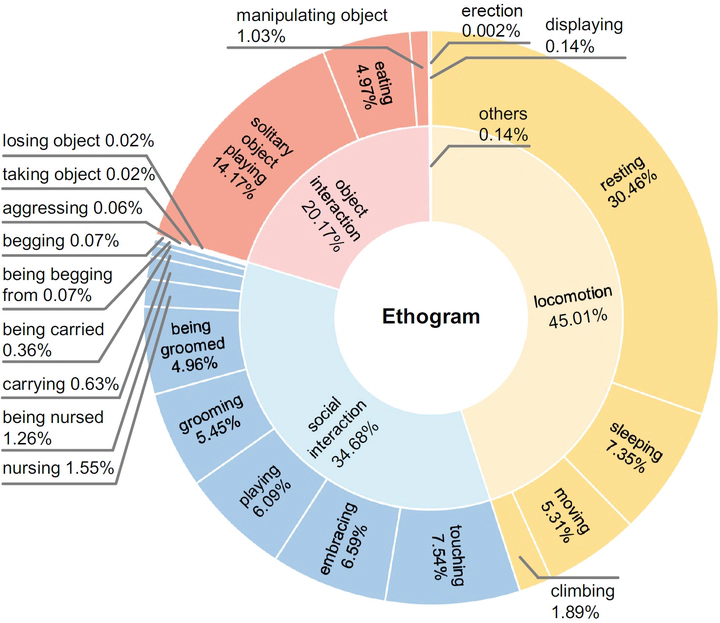[NeurIPS23] ChimpACT: A Longitudinal Dataset for Understanding Chimpanzee Behaviors

Abstract
Understanding the behavior of non-human primates is crucial for improving animal welfare, modeling social behavior, and gaining insights into distinctively human and phylogenetically shared behaviors. However, the lack of datasets on non-human primate behavior hinders in-depth exploration of primate social interactions, posing challenges to research on our closest living relatives. To address these limitations, we present ChimpACT, a comprehensive dataset for quantifying the longitudinal behavior and social relations of chimpanzees within a social group. Spanning from 2015 to 2018, ChimpACT features videos of a group of over 20 chimpanzees residing at the Leipzig Zoo, Germany, with a particular focus on documenting the developmental trajectory of one young male, Azibo. ChimpACT is both comprehensive and challenging, consisting of 163 videos with a cumulative 160,500 frames, each richly annotated with detection, identification, pose estimation, and fine-grained spatiotemporal behavior labels. We benchmark representative methods of three tracks on ChimpACT: (i) tracking and identification, (ii) pose estimation, and (iii) spatiotemporal action detection of the chimpanzees. Our experiments reveal that ChimpACT offers ample opportunities for both devising new methods and adapting existing ones to solve fundamental computer vision tasks applied to chimpanzee groups, such as detection, pose estimation, and behavior analysis, ultimately deepening our comprehension of communication and sociality in non-human primates.